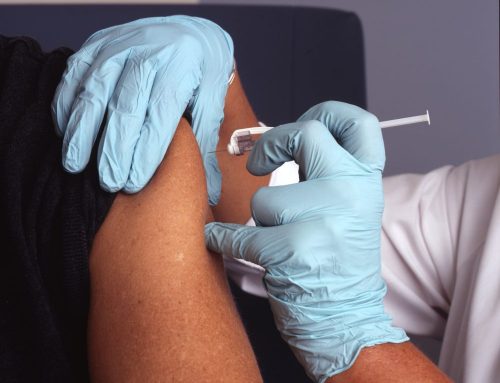Testing for COVID-19 is on everyone’s mind this week as we are searching for a way to return to some normal cadence of our lives. If we had the perfect test, validated and approved by the FDA, we would have an important tool to be confident that asymptomatic people did not pose a threat to others, that they could resume work, school, and other activities, and we would have some reliable statistics about the viral penetrance in our communities. The CDC website is offering little in the way of information about testing unless you are very sick with presumed COVID-19.
The CO State Health Department says that not everyone with symptoms in Colorado will get a test or needs a test, which is a statement that is in direct conflict with respect with what the trump administration is saying: “everyone who needs a test will get a test.”
The Problem with Our Statistics
While there is so much that is unclear, there are a few things that are VERY clear. Our statistics regarding the prevalence of COVID-19 in our community and country are entirely unreliable. For example, we have a death count from COVID-19 that may not truly reflect what is happening, e.g. a patient might die from COVID-19, which caused myocardial infection, and the death certificate will list “cardiac event” as its cause of death, which skews the statistics.
Additionally, medical offices in Boulder do not have tests to administer for our patients so there are numerous cases not being confirmed. This is not unique to our county; it is affecting our entire country. Because of this we might not ever know how many people have mild to moderate infections because the access to testing has been abysmal. We also know that our current tests are showing a high false negative rate in some studies, which would give one the false sense that they are not infectious. Tragically, the Chinese ophthalmologist who brought this pandemic to light in China, Dr. Li Wenliang, had several negative tests before dying from the infection himself.
We Don’t Yet Know How Long Someone Is Contagious
During the Ebola epidemic, which is just now winding down after 19 months in the Congo, if a new case did not present for 42 days (which is the number of days representing 2 incubation periods), they would consider themselves free of the disease. We are not confident about the incubation period for COVID-19 yet. It could be two weeks or longer. In other countries there are spikes of illness that continue to be concerning and that could drive a cluster of illnesses in months to come. We may have to watch such statistics here in the US, but this hinges on whether we have an adequate means of determining infection.
Antibody Testing – Pros and Cons
The FDA has yet to approve any antibody testing, and while there are numerous independent labs providing tests, the challenge for me is to determine which one to use and whether they are reliable. In an attempt to remain current with this epidemic and provide patients with testing options, there are numerous issues to consider. Outside of this pandemic, testing is imperfect: there are no perfect tests even in other testing realms, such as hormones, red blood cells, and some inflammatory measures.
PROS
Testing can:
- Help satisfy some of the concerns of patients with symptoms
- Help patients if they have been sick for a long time understand what is going on
- Help confirm if someone is “safe” to be around or return to work
CONS
- Testing doesn’t change what patients need to do: stay at home if symptomatic or sick.
- False negatives might occur in patients who have yet to mount an antibody response or in those who might not do so despite viral exposure.
- There could be cross-reactivity with other coronaviruses that are not SARS-CoV-2, which could result in false positives potentially putting a person into a false sense of an infectious state.
- There is not yet clarity that having detectable antibodies confers immunity. Thus, we don’t know if having antibodies prevents recurrence.
- It is also possible to have positive antibodies and continue to shed the virus for several weeks after symptoms improve. Thus, we don’t yet have clarity that having antibodies prevents community spread.
- Several tests will be necessary after a positive test to measure when the infection has passed.
- Results from antibody testing can’t be used as the sole basis to diagnose or exclude COVID-19 infection or to inform infection status. Positive results may be due to past or present infection or exposure with non-SARS-CoV-2 coronavirus strains, such as coronavirus HKU1, NL63, OC43, or 229E.
While positive results from these tests can be very helpful, negative COVID-19 test results may lead to a false sense of security. Clinicians are advised to use diagnostics and also, evaluate the full clinical picture in determining the proper diagnosis of patients who may have COVID-19.
Who Can Currently Get Tested
Colorado state Public Health labs have prioritized testing into the following groups:
TIER 1
- Hospitalized patients
- Health care workers with symptoms
TIER 2
- Patients in long-term care facilities or other residential settings such as homeless shelters or correctional facilities with symptoms
- Patients over age 65 with symptoms
- Patients with underlying conditions with symptoms
- First responders with symptoms
- Critical infrastructure workers with symptoms
- People with symptoms who work with vulnerable populations or in group residential settings
TIER 3
- Other individuals with symptoms
How Holistica Is Testing Our Patients
In order to move forward toward some kind of evaluation of our patients, we are offering a test that has been used to test antibodies for COVID-19. We have spoken to the chief science officer of KBMO Diagnostics, who makes this test, and while it is not FDA approved, we are offering this test as we feel it meets scientifically rigorous examination. This test has been run on over 2 million patients. It was the first antibody test to be approved by the Chinese FDA. It is CE marked and submitted to the FDA on March 22nd.
If you or a family member would like to get tested, please contact Holistica, and we will help you determine if this is the right test for you. Test results need to be evaluated on a case by case basis due to the multiple factors that impact a positive or false negative diagnosis (e.g. the unknowns about how long the virus is shedding and the incubation phase of the illness).
What your results mean:
- If immunoglobulin tests are all negative, the test indicates the person has not been recently exposed to the COVID-19 virus.
- If the test shows only IgM, the person is likely in the early stage of the virus infection and likely very infective.
- If IgM and IgG are positive, the person is likely in the middle stage of infection and still likely infective.
- If the person is only positive for IgG, then the person is either over the infection or in its last stage. They are most likely no longer able to transmit the virus and, we cannot be certain, but likely this person carries immunity to this viral strain.
How to get tested:
- Set up an appointment for a blood draw: Call 303-449-3777 or email us at [email protected].
- In order to receive a test, Use Physician Reference Number (C-1901714) to order the test. If you have any questions, you can email KBMO [email protected] or call them at: 1-617-933-8130
- Cost is $150 to KBMO. There is a $25 phlebotomy fee at Holistica.
- KBMO will soon be offering a finger stick test that you can do at home as well.
- If you are currently ill please make separate arrangements with us for an at home blood draw.
- Please wear a mask when you come to the clinic.
- Your blood draw will take place in the front of the building.
- Results take 24-48 hours.
Test results need to be discussed with your provider to understand the implications moving forward for you. A 15 minute appointment to discuss test results is highly recommended. Cost is $50.



